The prophets are as mad as the politicians and public servants—even madder are the people who make them lead the masses further into hell.
Dr. Yaw Perbi
Global CEO, The HuD Group
INTRODUCING MY MADDEST PATIENT, EVER
Let me tell you about the maddest patient I’ve ever seen in all my medical practice, Anahg. As we speak, she is at post-retirement age, about 65, still uncured, but I have been seeing her since age nine. As a scientifically trained person I’m not one to be superstitious but I surely do acknowledge spiritual realities. Twenty-eight years before she was even born, one of her maternal uncles warned that unless certain practices were carried out and others eschewed, she will never progress in life. Born she was, yes, even first-born; but progress, no. Anahg was born alright to festivities galore, but she has been brought in several times since nine, since that first time she started going gaga, ostensibly due to a self-inflicted blow to the head.
Ever since that initial attempt at self-harm she has proven that her gross mismanagement of her otherwise well-endowed self with a concomitant addiction to things she would be better off without are her undoing—sometimes she’s prostituted herself, but most often rather borrows and gambles, to get a fix. I cannot count on my fingers anymore how often she’s been wheeled in as a complete mess—my last count was 16 or 17 times to my facility alone (who knows of others?). Every time she leaves my consulting room she does the same things that brought her back on admission the previous time—after she’s promised “never again.” And this is the part that blows my mind (and perhaps I’m mad too): she does the same things over and over again and somehow she expects different results.
Her self-mismanagement can be as funny as wearing shoes before her socks and her underwear over her skirt or as serious as, on her way out of home, locking her children in the house behind the door all day, supposing she had rather locked the door after them (yes, she’s had many children with as many men). She thinks her children are weird and insane; not her. And her delusions of grandeur are of the kind I’ve hardly come across: as a self-anointed Royal, in her mad mind she has tea with the Queen of England at 4pm daily without fail and wonders what all the fuss is about Lionel Messi, Pele and Christiano Ronaldo when she is the GOAT—Greatest Of All Time. While she may sing “How Great Thou Art” to herself, everyone else knows she’s certifiably mad…and broke too.
I could tell you more about Anahg but let me stop here and ask you: what predominant emotion did you feel as you heard about this client? What do you propose I should do next as her doctor?
PARABLE PUT PLAIN
Well, Anahg, A-N-A-H-G, is actually Ghana spelt backwards. Born in 1957, her first visit to the IMF was after the 1966 coup d’état. We don’t have the luxury of time to delineate the details of all the 17 visits to the IMF (sometimes more than once a year) but suffice it to say that our taste for free services, the high-time life (especially big cars, luxurious mansions and fat ex gratia for our big people), mismanagement, unleadership, addiction to foreign goods and insatiable appetite for debt—domestic and external—have been our undoing. And our sense of self-importance is through the roof, largely living more on past glories than current exploits. And yes, our gross mismanagement is as hilarious as prioritizing entertainment when we haven’t earned a break from any hard work or as annoying as finishing an asphalt road, then immediately after breaking it to install a pipe across it, underneath. Headless.
If you think we’re doing well, you are part of the problem—as a people, we are just too easily satisfied with minimal public progress. See how we stage a funfair over the commissioning of infrastructure, not caring a hoot about what the superstructures shall be, that ‘infra’ by nature is only foundational. Yes, thank God for electricity, water roads and bridges but these are built so that… what??? Somehow our insatiable appetite for the best and the most progressive is only for personal and private benefit. Believe it or not, it was in 1929 in the Gold Coast, nearly three decades before independence, when Dr. Ephraim Amu warned us about greed, selfishness and conceit. “So will our nation succeed or always suffer from greed, on what we do today depends our future way,” goes one translation of his Y3n Ara Asaase Ni chorus. Think about it: he composed it in 1929 even before we became Ghana.
DELUSION DEFINED
Why are we mad? “The definition of insanity is doing the same thing over and over again and expecting a different result.” Most famously attributed to Albert Einstein—and to other individuals and groups like Alcoholics Anonymous—there is no substantive evidence that Einstein wrote or spoke that statement.[1] While we cannot agree on who formed that definition of madness we can agree that the diagnosis is sound. Seventeen times to just the IMF between 1966 and 2022, doing the same thing over and over again and expecting a different result, dare we say we are not mad?
Fortunately, we know the cure (I’ll come to that shortly) but we must begin our own “Twelve Step” process like Alcoholics Anonymous, an organization designed to help addicts and their families. Step 1: They admit they are powerless over alcohol—that their lives had become unmanageable. Step 2: They come to believe that a Power greater than themselves could restore them to sanity.
The story is told that an attendee at one such meeting hesitated to accept the accuracy of the second step. Not all the women were willing to admit they needed to be “restored to sanity.” In fact, one of them adamantly maintained that she had never reached a point of insanity. But another remarked, “Insanity is doing the same thing over and over again and expecting different results.”[2]
Tell anyone who doesn’t believe we are a mad nation that insanity is doing the same thing over and over again, like voting for the same two political parties every four years, and expecting different results. Our own 12-Step process should begin with step 1: Admit we are powerless over debt, greed, corruption, partisanship, sycophancy, selfishness, self-mismanagement and yes, external forces—that our lives have become unmanageable. Step 2: Believe that a Power greater than ourselves could restore us to sanity.
Fortunately, that Power greater than ourselves has provided a cure if only we have the men and women with the brains, brawn and balls to make it work [yes, females have balls too, they just don’t show them off like males do—they’re called ovaries]. By the way, the fact that we are little less mad than our other African siblings doesn’t help anybody; and it certainly doesn’t cure us. Oh and about prayers to a higher Power also, we might want to modify these from the kind we pray to kill our enemies because “we have met the enemy and he is us.”[3]
As for our delusions of grandeur, George A. Kelley’s 1955 book included a definition that corresponds with our madness definition above: “From the standpoint of the psychology of personal constructs we may define a disorder as any personal construction which is used repeatedly in spite of consistent invalidation.”[4] We are not as great as we think. We are mad.
CURE CURATED
A cure has been found in a Ghana Compact for our political and economic transformation with six thematic areas and three binding constraints—all undergirded by a solid foundation of refurbished values. Initiated by Dr. K.Y. Amoako (former head of the U.N.’s Economic Commission for Africa and founder of the Africa Centre for Economic Transformation (ACET)), together with eminent individual voices of reason like former president Kufuor and Dr. Ibn Chambas, plus every credible policy think tank in the country, numerous impactful Civil Society Organizations in Ghana and government arms like the Council of State, Peace Council, NCCE and the National Development Planning Commission, we have researched, jaw-jawed and recognized that over the past twenty-five years, three key factors have impeded Ghana’s political and economic transformation and must be addressed urgently under this Compact for Ghana:
First, the now 30-year-old “1992 Constitution has not been entirely fit for purpose, and key provisions including the separation of powers between the executive and legislature as well as issues of governance and administration at the district and local government levels require reform.”[5] The call for changes will take real leadership—managers can keep steering this constitution; only leaders can change it and change our course.
“Second, the frequent transfers of power between the two major political parties have resulted in policy direction and program implementation interruptions, setting back Ghana’s economic transformation. The underlying cause is the absence of an agreed national long-term vision with clear and measurable targets aligned with medium-term plans of the government in power.
“Third, governments in the Fourth Republic have historically run budget deficits, which have tended to balloon during election cycles, forcing governments to increase their borrowing to plug the financing gap. As a result, our debt-to-GDP ratio has reached an alarmingly high level and has increased our debt servicing costs, starving the country of much-needed public investment spending.”[6] Now we know that democracy brings people to the table but doesn’t necessarily put food on that table!
Consistent with the United Nations’ Sustainable Development Goals (SDGs) and Ghana’s commitments under the African Union’s Agenda 2063, there are six key focus areas to help us build the Ghana we want to see over the next 25 years:
- “Education and skills for the future of work. We must expand access and improve senior high school quality, as well as balance the supply and demand of skills.”[7]
- “Youth leadership empowerment. We must nurture and harness the strong interest of young Ghanaians in contributing to the country’s development by engaging them in policy formation and giving them a platform for their voices to be heard.
- “A healthy and productive labor force. Establishing effective health institutions, robust insurance schemes, stronger maternal, child, and adolescent health policies, and better hygiene and treatment conditions [will] quickly and vastly improve health outcomes.
- “Private sector-driven transformation. Businesses continue to be held back by out-of-date regulation and lack of reliable basic services. Appropriate investments in infrastructure alongside technology and regulatory reforms can create an even more conducive and competitive business environment.
- “Gender equality as a moral and economic imperative. Ensuring women’s equal voice and participation in society, politics, and the private sector is a necessary precursor for Ghana’s political and economic transformation. That transformation will not take place without girls and women having equal opportunity throughout their lives.”[8] What is the sense in a bird with two perfectly healthy wings, trying to fly with only one wing?
- “Climate change adaptation and mitigation. Climate change will have substantial impacts on Ghana. Ghana can turn these risks into opportunities by using technology to manage key climate-sensitive sectors such as agriculture, ecosystems, and energy.”[9]
What is different about these well-coalesced thematic areas and three binding constraints as a way forward is the research-informed, non-partisan, non-polarized collection of a broad spectrum of prominent individuals, policy think tanks, civil society organizations and government agencies that have reached consensus in a compact that was launched earlier this month (6th December). And there is an imminent national conversation with the grassroots via a roadshow between now and a grand national durbar in June 2023, before all these political parties begin their manifesto machinations and campaigning for Election 2024. As for the importance of all of this on a foundation of renewed national values, you may check out Dr. KY Amoako’s op-ed or mine on Myjoyonline entitled “On Saving a Nation.”
IN CONCLUSION
If we say we are not mad, then we do not have what psychiatrists call ‘insight,’ and that implies our prognosis is very poor. Just before Christmas, I checked a prodigal son into a rehab. He had been gone God-knows-where for the last 15 years. His prognosis is great because he admits he is a sick addict and is highly motivated to make meaning out of his existence, especially after a change of environment and being introduced to several well-standing members of the University of Ghana community soon after his return from the wild.
Whichever way you look at it, whether madness as a state of having a serious mental illness or exhibiting extremely foolish behaviour or a state of wild, chaotic activity, Ghana is a mad nation. Our prophets are as mad as our politicians and public servants—even madder are the people who line up every four years—with World Cup and Olympic Games frequency and fervor—to vote for mad men, male and female, to lead us further into hell. Oh wretched beings we are, who will deliver us from this mess? Certainly not the IMF long-term. It’s just an addict’s fix. Nearly 30 years ago, Dr. Mensa Otabil is on record to have said, “we will always be running but never catch up … I get amused when we talk of breaking the yoke of colonialism and still use the blacksmith called IMF or World Bank to sharpen our tools.”[10] Just as we yearn for powerful strikers in our national football team, we yearn for potent strikers in the political arena.
“If you always do what you’ve always done, you always get what you’ve always gotten,”[11] said an educator and counselor in a speech as far back as October 1981. 2023 beckons. There will be policed prophecies on 31st night, tonight. And soon the election fever of 2024. When the next president and their government is sworn-in come January 2025, beginning the second quarter of the 21st century, will we remain mad or a little less so? Come with me to 2050: imagine the freedom, imagine the prosperity—the Ghana we want—IF we’ve had the leaders—male and female—with the guts, gumptions and goods to strike and score where it matters, when it matters, especially between now and then. “God bless our homeland Ghana and make our nation great and strong,” not broke and mad.
[1] It is listed within a section called “Misattributed to Einstein” in the comprehensive reference “The Ultimate Quotable Einstein” from Princeton University Press. 2010, The Ultimate Quotable Einstein, Edited by Alice Calaprice, Section: Misattributed to Einstein, Quote Page 474, Princeton University Press, Princeton, New Jersey.
[2] 1981, October 11, The Knoxville News-Sentinel, “Al-Anon Helps Family, Friends to Orderly Lives” by Betsy Pickle (Living Today Staff Writer), Quote Page F17, Column 2, Knoxville, Tennessee.
[3] From Walt Kelly’s funny animal comic strip Pogo, phrase coined in 1970 based on an 1812 war comment by Master Commandant Oliver Perry.
[4] 1955, The Psychology of Personal Constructs by George A. Kelly, Volume 2: Clinical Diagnosis and Psychotherapy, Quote Page 831, Published by W. W. Norton & Company, New York.
[5] Executive Summary: Securing Ghana’s Future: A Compact for the Next Quarter Century by ACET, 2022. For more information visit www.acetforafrica.org.
[6] Ibid
[7] Ibid.
[8] Ibid.
[9] Ibid.
[10] Paul Gifford. 1994. `Ghana’s Charismatic Churches’, Journal of Religion in Africa, 24 (3), 261.
[11] 1981, October 24, The Milwaukee Sentinel, “Search For Quality Called Key To Life” by Tom Ahern, Quote Page 5, Column 5, Milwaukee, Wisconsin. (Google News Archive)

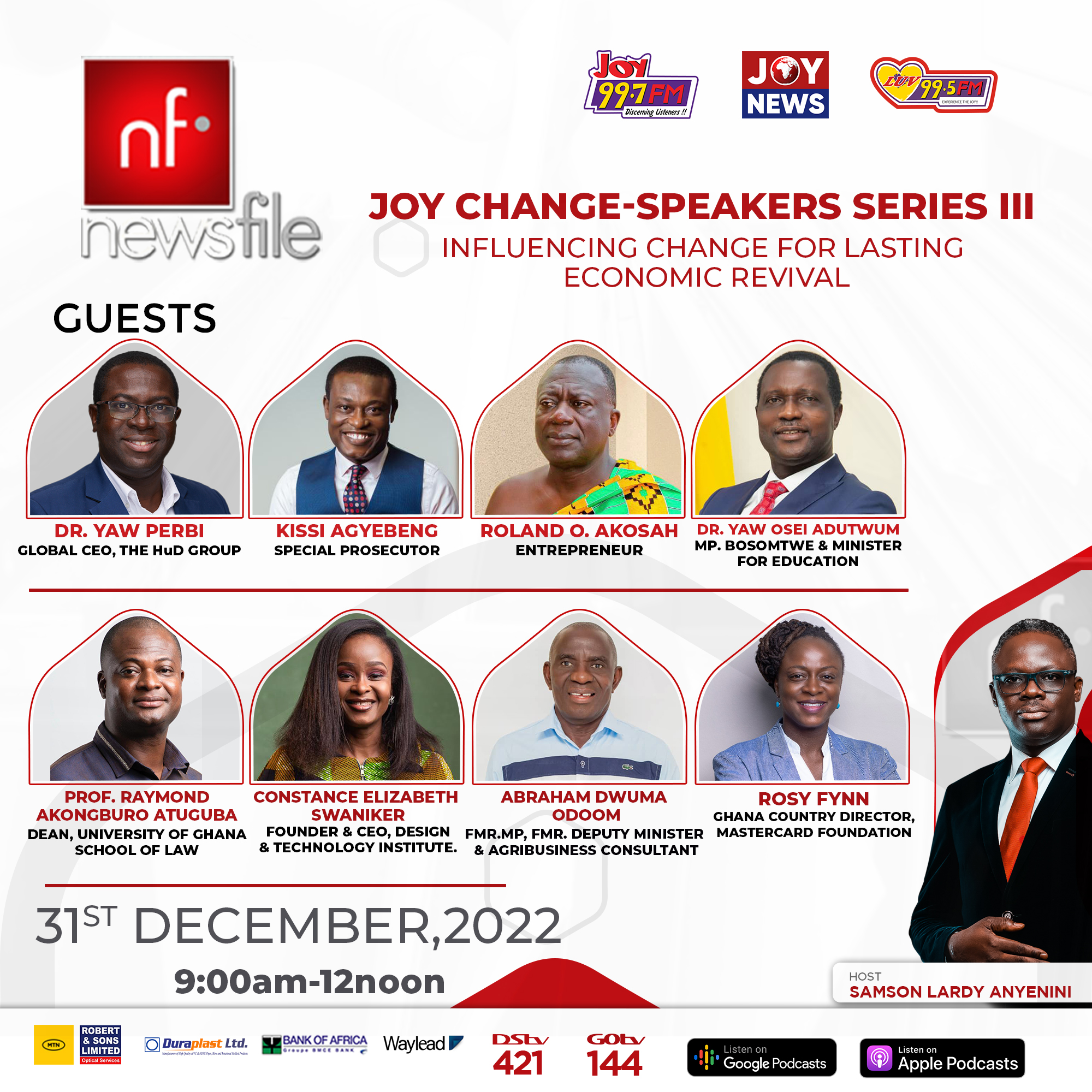


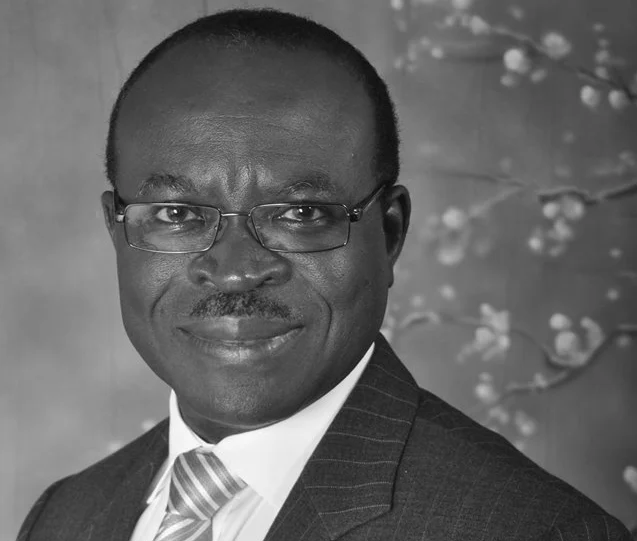


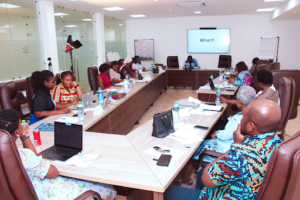
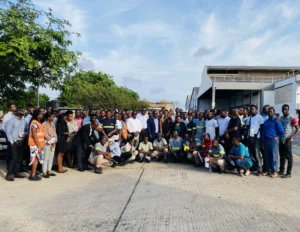
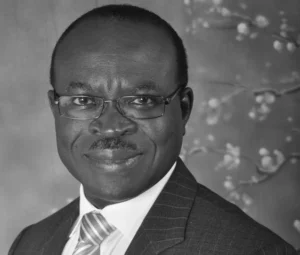

3 Comments
Need we hear more? Need we read more? Need we see more? A case of knowing where the pain is before we walk into the consulting room. We feel better sometimes purely influenced by Placibo.
2023 must be a year of action in Ghana. Less talk but more community engagement for real results. If we do not solve our huge problems in micro bits, we will be singing the same song when we find ourselves going back to Big Daddy IMF for the 18th time.
Let’s all provide micro leadership in our mini-environment and rescue Anahg. The new Ghana is in everyone’s corner.
We need new leadership, yes. But we need a new crop to begin to rise up to live their passion. Sometimes, I also wonder ooh. Build an asphalt road. After commission, cut through it for a ramp. Then, ‘they say,’ the ramp was not budgeted into the initial construction. Why dent when we create? Hmmm
Happy new year to you Dr. Perbi. Regards to Anahg when she visits again.
Need we hear more? Need we read more? Need we see more? A case of knowing where the pain is before we walk into the consulting room. We feel better sometimes purely influenced by Placebo.
2023 must be a year of action in Ghana. Less talk but more community engagement for real results. If we do not solve our huge problems in micro bits, we will be singing the same song when we find ourselves going back to Big Daddy IMF for the 18th time.
Let’s all provide micro leadership in our mini-environment and rescue Anahg. The new Ghana is in everyone’s corner.
We need new leadership, yes. But we need a new crop to begin to rise to live their passion. Sometimes, I also wonder ooh. Build an asphalt road. After commission, cut through it for a ramp. Then, ‘they say,’ the ramp was not budgeted into the initial construction. Why dent when we create? Hmmm
Happy new year to you Dr. Perbi. Regards to Anahg when she visits again.
Dr. Su! Happy new year! You’re such a refreshing voice of reason. Let’s partner to shake some tables this year. I appreciate you encouragement, share your sentiments and I really do hope Anahg gets well soon, by prescription drives or divine intervention!